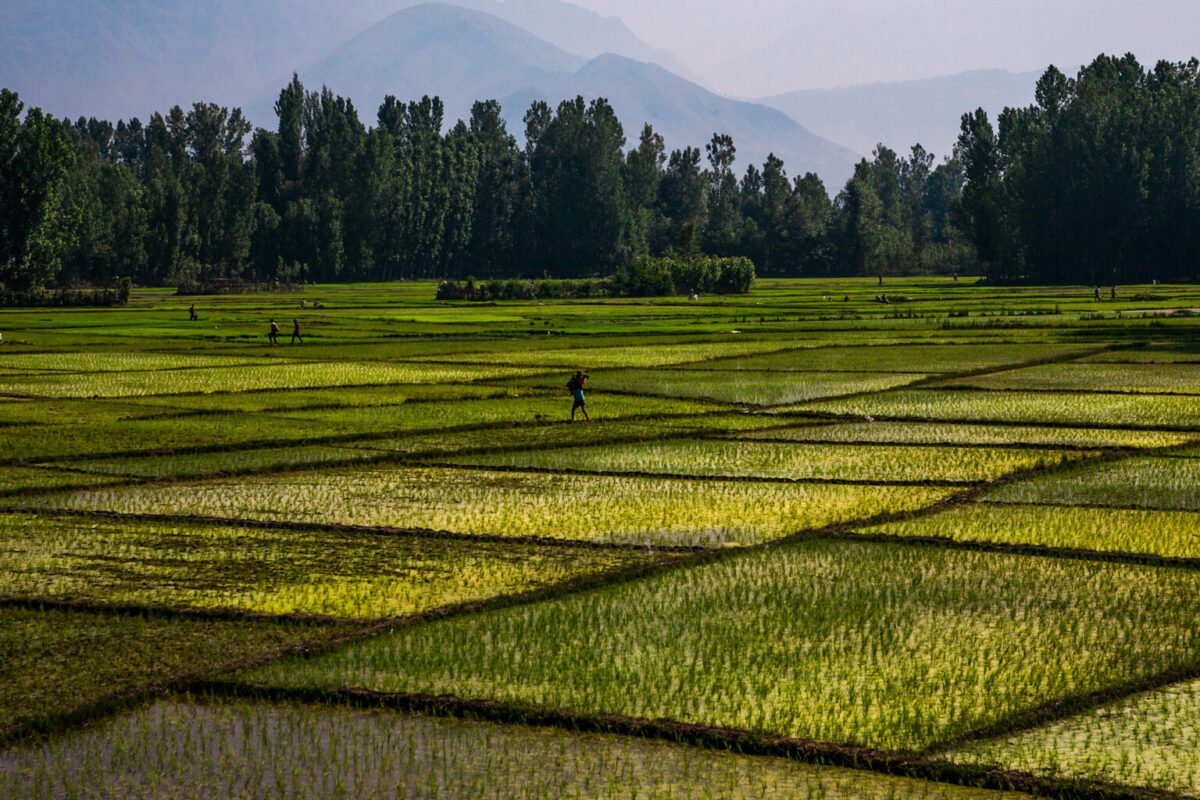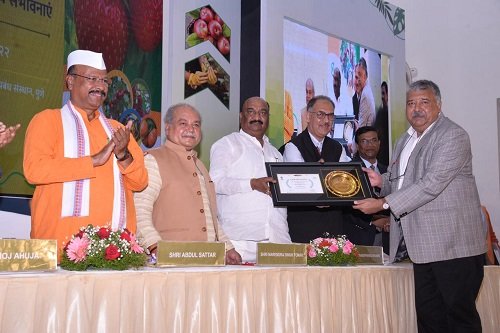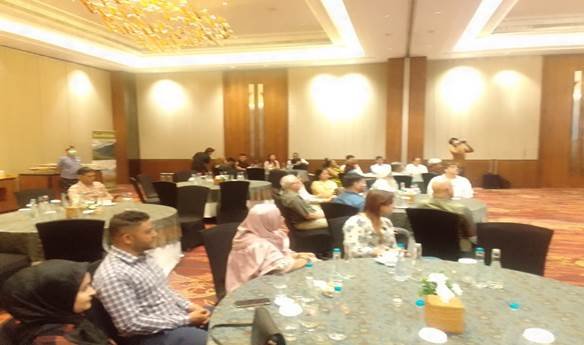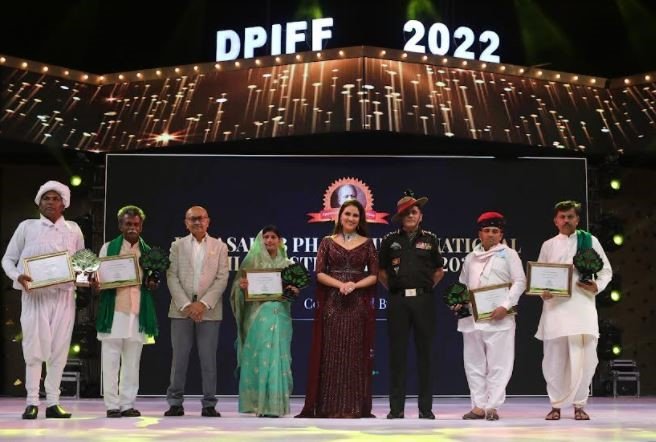The $1.2 Trillion Surge: Ag Biologicals and Organic Growth
By Dr Minshad Ansari, CEO and Founder, Bionema Group, Wales, United Kingdom
The agricultural landscape is profoundly transforming as the global drive toward sustainability accelerates. The sector’s projected growth to a staggering $1.2 trillion by 2034 signals immense economic potential and underscores a significant shift toward environmentally responsible farming practices. With the agricultural biologicals market forecasted to surge from $16.7 billion in 2024 to $31.8 billion by 2029 (Markets and Markets, 2024), alongside significant expansions in agrochemicals and organic food markets, we are on the brink of a revolution in how food is grown, protected, and consumed.
Unprecedented Growth in Agricultural Biologicals
The global agricultural biological market is expected to grow at a compound annual growth rate (CAGR) of 13.5 per cent, reaching $31.8 billion by 2029. Agricultural biologicals—including biopesticides, biofertilisers, and biostimulants—are essential to sustainable farming practices. These products enhance crop protection, improve nutrient efficiency, and restore soil health while avoiding the environmental damage associated with synthetic chemicals.
Several key factors are driving this shift:
•Consumer Demand for Organic Produce: Globally, consumers increasingly seek natural, chemical-free products, pushing farmers to adopt biological alternatives.
•Stricter Regulations: Governments in Europe, North America, and other regions are implementing stricter controls on chemical inputs, speeding up the transition to biologicals.
•Environmental Awareness: The adverse effects of chemical-intensive farming on ecosystems are becoming more apparent. Biologicals offer a sustainable solution with minimal environmental harm.
Regional Drivers of Growth
The Asia-Pacific region is set to be a significant growth engine for agricultural biologicals. Countries like India and China, with vast agricultural sectors and growing populations, are increasingly focusing on sustainable farming practices. Thanks to its stringent regulatory environment, Europe continues to play a leading role, mainly through the EU’s Farm to Fork strategy, which aims for a 50 per cent reduction in pesticide use by 2030.
The U.S. market is expanding rapidly in North America due to increased investment in biological research and innovation. Latin America, especially Brazil, is emerging as a critical player in biologicals, driven by its leadership in organic farming and alternatives to agrochemicals.
Agrochemicals: A Market in Transition
Despite the rise of biologicals, the agrochemicals market is expected to grow from $365.6 billion in 2024 to $491.69 billion by 2032 (Market Research Future, 2024). However, the narrative surrounding agrochemicals is shifting. Farmers are increasingly adopting integrated pest management (IPM) strategies that combine biologicals with synthetic chemicals, balancing yield targets with environmental sustainability.
Agrochemicals will still play a role in global food production, but their use will increasingly be complemented by biological solutions to reduce environmental impact. This hybrid approach is critical in regions where fully transitioning to biological methods is not feasible due to scale, cost, or other constraints.
Organic Food: A Powerhouse Market
The global organic food market is forecasted to rise from $228.35 billion in 2024 to $658.38 billion by 2034 (Precedence Research, 2024). This reflects a significant shift in consumer preferences toward healthier, environmentally friendly food choices.
Organic farming emphasises sustainability, biodiversity, and soil health, making agricultural biologicals a natural fit for this market. Biopesticides, biofertilisers, and biostimulants are at the core of organic farming systems, replacing chemical inputs with natural solutions aligned with organic certification principles. Countries like Germany, the U.S., and France lead this trend, with robust organic farming sectors and consumers willing to pay premiums for organic products.
Regulatory frameworks shaping the market
The regulatory landscape is pivotal to the growth of agricultural biologicals. In the European Union, the regulatory framework has become increasingly favourable for biologicals, particularly with the implementation of the European Green Deal and the Farm to Fork strategy, which promote sustainable food systems and aim to reduce pesticide use significantly. The U.S. Environmental Protection Agency (EPA) has also streamlined the biopesticide registration process, encouraging faster adoption.
In Brazil, one of the world’s largest agricultural markets, regulatory reforms have accelerated the approval of biological products. The country’s leadership in organic farming and favourable policy environment make it a key player in driving biological adoption in Latin America. Similarly, India has introduced initiatives through the Indian Council of Agricultural Research (ICAR) and its Farm Science Centres (KVKs) network to promote biological products.
However, challenges remain, particularly in harmonising regulations across regions. Global regulatory collaboration is necessary to establish consistent standards, reduce registration bottlenecks, and foster innovation.
Key trends driving growth
1.Innovations in Microbial Technology: Microbial research advances enable the development of highly effective biological products that target specific pests, improve nutrient uptake, and enhance plant resilience. Innovations in formulation technologies, such as encapsulation and controlled-release systems, are improving the stability and efficacy of biologicals, making them more viable for large-scale farming.
2.Consumer Awareness and Organic Certification: As consumers become more conscious of the environmental impact of their food choices, demand for organic and sustainably produced food is rising. This shift drives the need for biological inputs that meet organic certification standards, further boosting the adoption of biological solutions.
3.Climate-Smart Agriculture: Agriculture significantly contributes to greenhouse gas emissions. Agricultural biologicals, particularly soil microbes, play a crucial role in mitigating climate change by enhancing carbon sequestration, improving soil health, and reducing the carbon footprint of farming practices.
Despite rapid growth, the agricultural biologicals market faces several challenges:
•Regulatory Hurdles: Fragmented regulatory environments across regions slow the approval process for new biological products. Harmonising regulations will be vital in accelerating innovation and adoption.
•Farmer Education and Confidence: Many farmers remain sceptical of biological products due to a lack of knowledge or previous experiences with ineffective or ingenuine products. Education and field demonstrations are essential for building farmer confidence and ensuring widespread adoption.
• Supply Chain and Scalability: The infrastructure needed to produce, store, and distribute biological products at scale is still developing. Investments in supply chain logistics, cold storage, and distribution networks will be critical to meeting future demand.
The Future of Sustainable Agriculture
The $1.2 trillion surge in the agricultural biologicals, agrochemicals, and organic food markets reflects more than just economic growth—it signals a global commitment to transforming agriculture into a sustainable, eco-friendly industry. As the world grapples with climate change, food security, and environmental degradation, the rise of agricultural biologicals offers a pathway to a healthier and more sustainable future.
Innovations in microbial technology, growing consumer demand for organic products, and favourable regulatory frameworks are positioning agricultural biologicals as a cornerstone of global food production. By investing in these sustainable solutions today, we are laying the foundation for a future where agriculture feeds the world and preserves the planet for generations to come.
Agriculture is no longer just about yields; it’s about balancing productivity with responsibility. As the agricultural biological sector evolves, it is poised to create a future where farming is both economically viable and ecologically sound.
By Dr Minshad Ansari, CEO and Founder,














